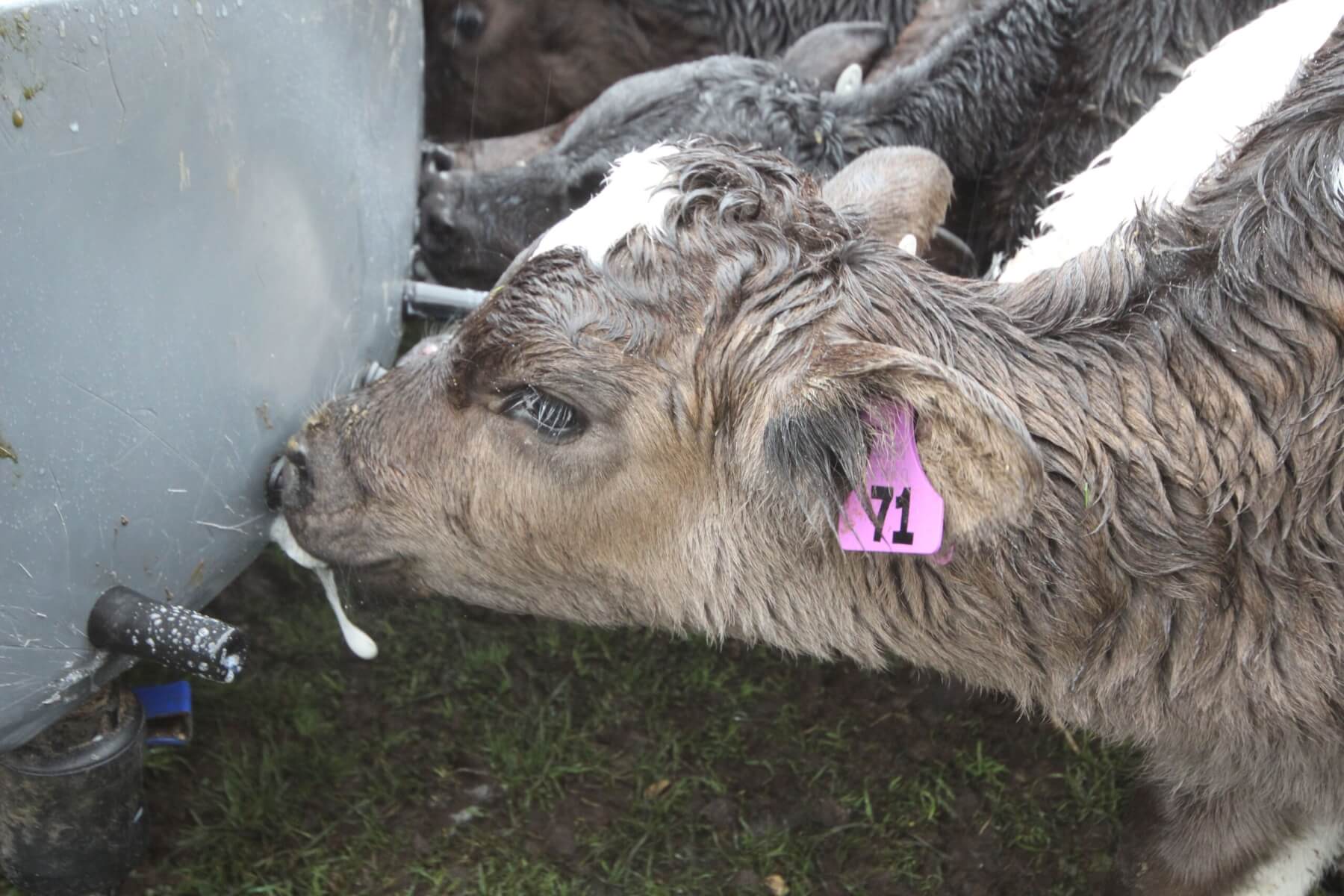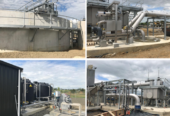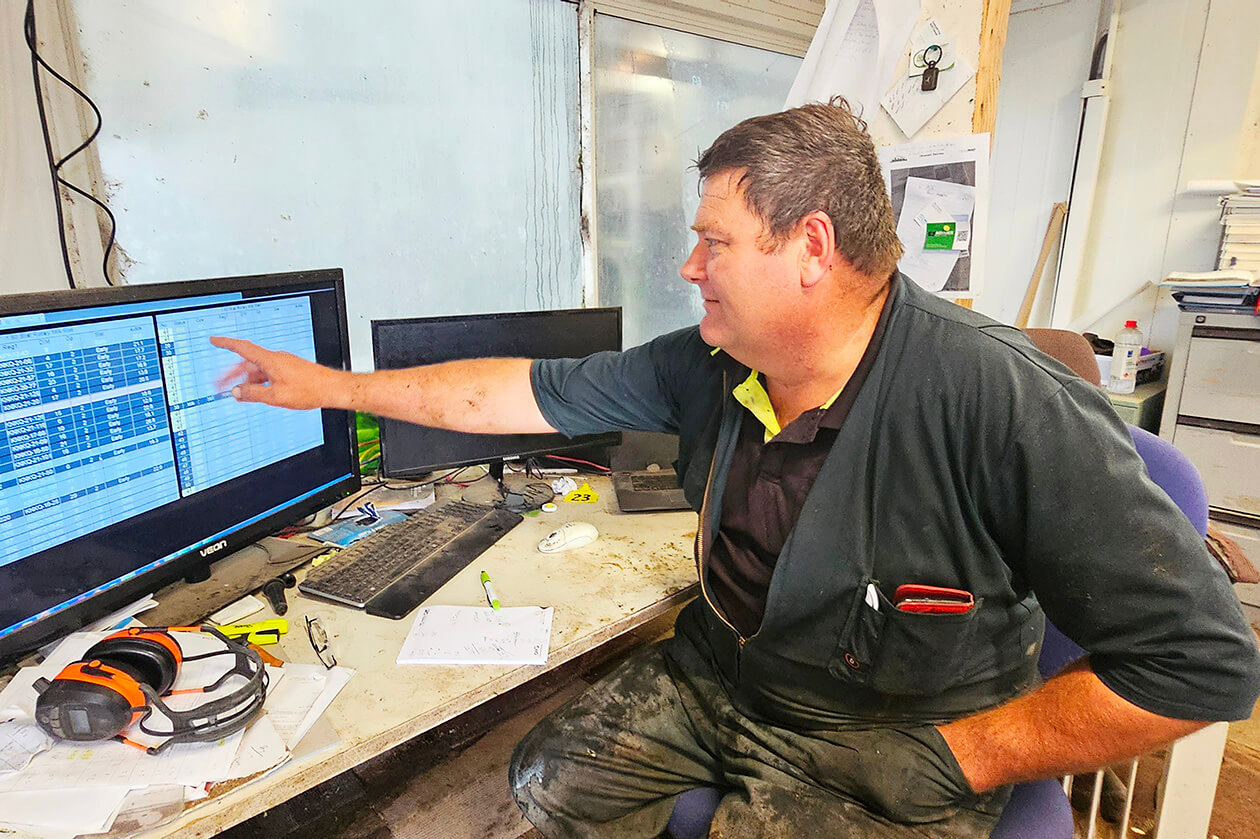
Ōhaupō dairy farmer Andrew Reymer checks out his cows’ milk stats in the $1.44 million cow shed he installed in 2008. Photo: Mary Anne Gill.
A Waipā farming leader says the hit dairy farmers are taking because of a reduced milk payout will hurt communities like Te Awamutu and Cambridge hard.
Ōhaupō dairy farmer Andrew Reymer says incomes down on the farm will drop up to 20 per cent.
“Most farmers if they’re not redoing their mortgages, they will be redoing their budgets,” he said.
“Where this money is going to disappear from is the community. Where we were going to buy a new barn, put a bit of concrete here and there, all those things are out the window.
“All that stuff that were nice to haves are all gone.”
Reymer is Waikato Federated Farmers vice president and before that chaired the dairy committee.
Fonterra has cut its predicted farm milk gate price to between $6.25 and $7.75 per kilogram of milk solids with a $7 mid-point, down a dollar on earlier forecasts.
It and Synlait blamed a downturn in the Chinese whole milk powder market.
Other big players Tatua and Open Country had yet to announce their payouts when The News went to press.
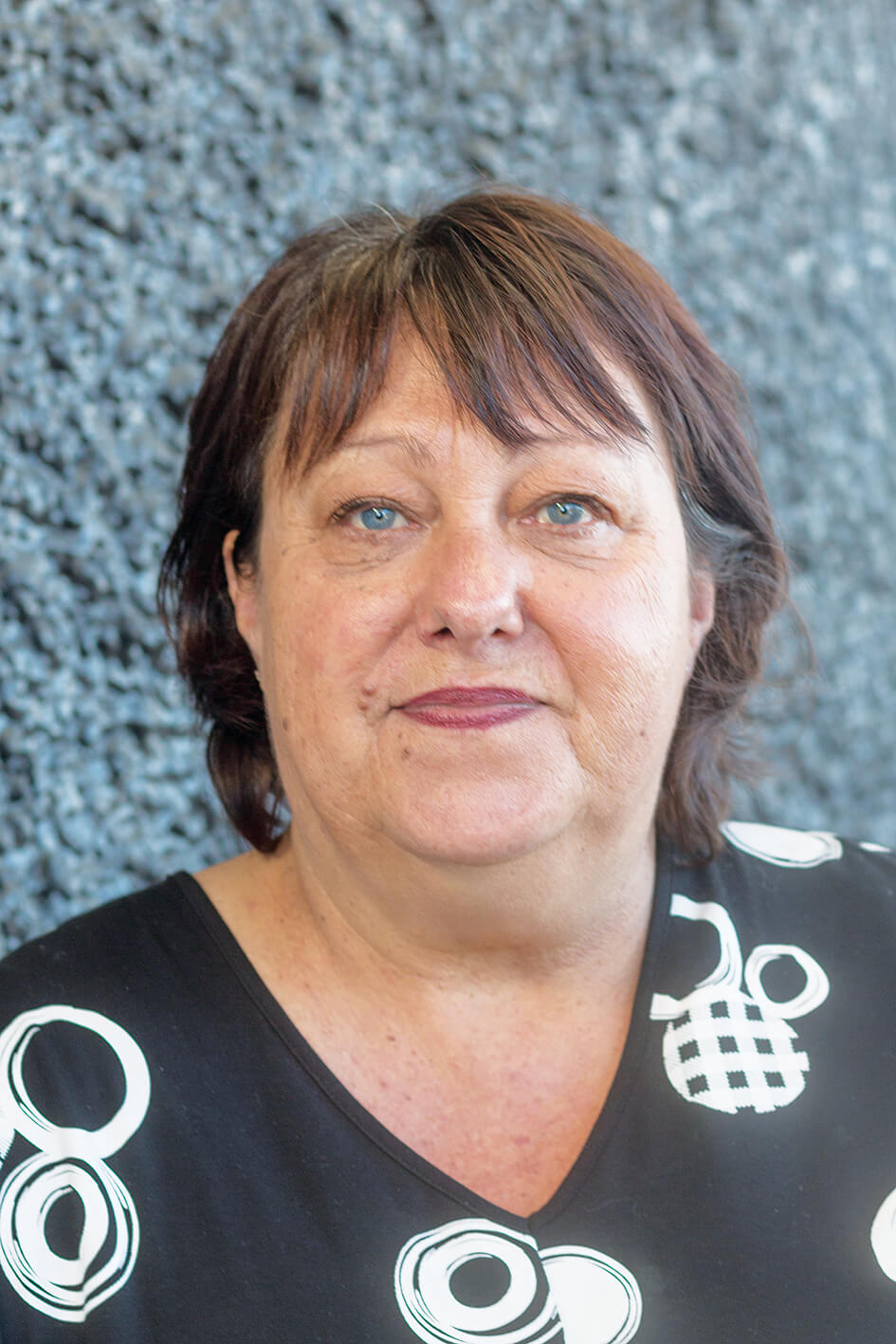
Kelly Bouzaid
Cambridge Chamber of Commerce chief executive Kelly Bouzaid said the reduced payout would have a flow on effect on the discretionary dollar spend.
Recent pedestrian counts in Cambridge central business district had not been great though although the rolling 10 months were still up, she said.
“We’re saying to retailers, dig in, be smart. Get out there and attract the customer.”
Te Awamutu Business Chamber chief executive Shane Walsh said while all appeared doom and gloom, the community had seen it all before.
“There’s not a lot (else) farmers can do.”

Shane Walsh
But it could also change and Te Awamutu was agile enough to respond.
“We’ll be working trying to support all local businesses.”
Reymer said farmers would hunker down, pay bills but there would be few extras.
“Interest rates are the big killer for us all. That’s all money going straight to the banks, not getting taxed or anything. The government won’t be getting a lot of net profit out of us.”
While Cyclone Gabrielle and other storms had hit big chunks of the North Island, Waipā had been relatively lucky.
“We benefitted from their misery,” with good growing conditions in the summer and till the end of May.
“But then it got too wet,” with all but a few cows dried off, he said.
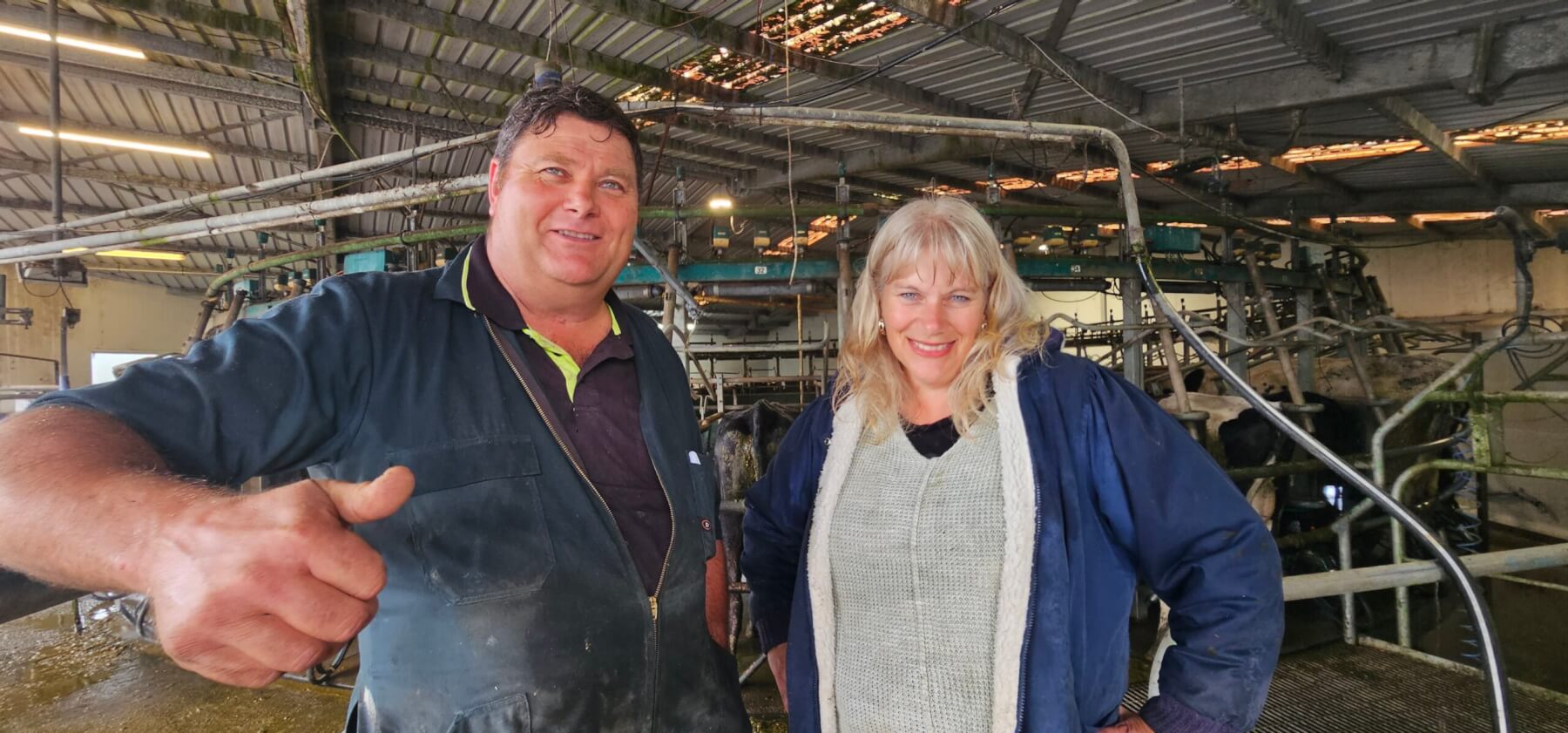
Andrew Reymer and wife Liz Stolwyk in the cowshed at the Reymer farm in Ōhaupō. Photo: Mary Anne Gill.
Reymer carries 450 cows on the 155ha Ōhaupō farm that has been in his family for more than 40 years. He averages 150,000 to 160,000 kgs/milksolids annually relying on the lush green grass the peat soil produces supplementing it with maize silage but little else.
“The only feed I buy in is calf food.”
Calving started earlier than expected.
“Calves were hitting the ground on 5 July and now we’re about three quarters of the way through.”
